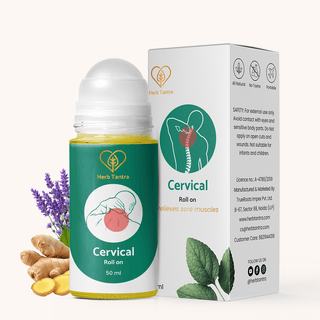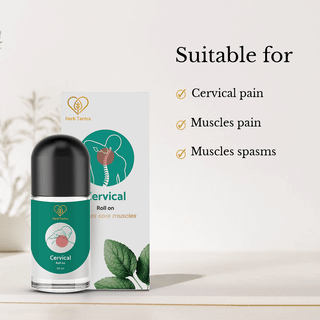Apple cider vinegar, or ACV, has earned a steady spot in many kitchen cabinets and wellness routines. Some use it for digestion, others for clearer skin or metabolism support. But does it really work? And what should you be cautious about? Let’s break it down simply.
What Is Apple Cider Vinegar?
Apple cider vinegar is made by fermenting crushed apples. Over time, natural bacteria turn the sugars into alcohol, and then into acetic acid, the key active compound in ACV. You’ll often see a cloudy substance in raw, unfiltered bottles, which is called “the mother.” It contains proteins, enzymes, and friendly bacteria.
It’s available as a liquid, but many prefer ACV tablets or effervescent tabs, especially for convenience and to avoid the strong taste.
The Real Benefits of Apple Cider Vinegar
People turn to ACV for different reasons, from metabolism to skin. While it’s not a miracle solution, research and traditional use suggest it may offer some real value when used mindfully.
1. Helps Support Weight Management
One of the better-known benefits of apple cider vinegar pills is appetite control. When taken before meals, ACV may help you feel full sooner. It ensures that you have fewer cravings and possibly eat less overall.
Some studies suggest it can help reduce body weight or support fat metabolism when combined with a balanced diet. You can find ACV tablets made specifically for craving control and weight support here.
2. Supports Blood Sugar Balance
ACV may help lower blood sugar levels after meals, especially when taken with starchy foods. It can improve insulin sensitivity and slow down how quickly sugar enters the bloodstream. This benefit is especially relevant for those watching their glucose levels or aiming for steady energy.
3. Aids Digestion
The acetic acid in apple cider vinegar can stimulate digestion and support gut function. It may help with occasional bloating or sluggish digestion. Since ACV also contains small amounts of probiotics, it could contribute to better gut flora over time.
Effervescent apple cider vinegar tablets are an easy way to incorporate it into your daily digestive routine without dealing with the sharp taste of liquid vinegar. Try our 15-tablet ACV pack if you're just getting started!
4. May Improve Skin & Scalp Health
When diluted properly, ACV is often used as a skin toner or a hair rinse. It helps balance the skin’s pH, may reduce dandruff, and could help with acne-prone skin. However, always test a small patch first! ACV is acidic and not for everyone’s skin.
Possible Side Effects of Apple Cider Vinegar
Just because it’s natural doesn’t mean it’s risk-free. Like anything potent, apple cider vinegar side effects are possible, especially if used incorrectly.
1. Tooth Enamel Damage
ACV is acidic. If taken in liquid form and undiluted, it can weaken your enamel over time. Drinking it through a straw and rinsing your mouth afterwards helps reduce this risk.
2. Digestive Discomfort
Some people experience heartburn, nausea, or stomach irritation. If that happens, it's a sign to scale back or switch to a gentler form like ACV tablets.
3. Skin and Throat Irritation
Never apply undiluted ACV directly to the skin. And when drinking it, dilute it well with water. Undiluted apple cider vinegar can cause a burning sensation or sore throat.
4. Medication Interactions
ACV may interact with medications like diuretics, insulin, and medications for heart patients. If you’re on regular prescriptions, talk to your healthcare provider before using it consistently.
5. Low Potassium
Excessive intake of ACV tablets can lead to reduced potassium levels. So, it’s best to stick to safe doses which are typically no more than 1–2 tablespoons (or equivalent tablet form) per day.
Who Should Avoid Apple Cider Vinegar?
ACV isn’t suitable for everyone. If you fall into any of these categories, use caution or skip it altogether:
- You have ulcers or chronic acid reflux.
- You're on medications for blood pressure, heart, or diabetes.
- You have low potassium levels.
- You're under 12 years old or pregnant (unless your doctor gives the green light).
What Do Apple Cider Vinegar Tablets Do?
Many people ask, what do apple cider tablets do differently? The main benefit is ease of use. No harsh taste, no acid on your teeth, and easy to carry. They deliver the same benefits from metabolism support and easy digestion to blood sugar balance, but without the sharpness of liquid vinegar.
If you’re unsure where to begin, our apple cider vinegar tablets offer a gentle starting point.
Conclusion
Apple cider vinegar isn’t a cure-all, but when used smartly, it can support your health in small but meaningful ways. Start slow, stay consistent, and always use it in moderation. Whether you prefer the liquid or ACV pills, the key is mindful and informed use, along with listening to how your body responds.
Thinking of trying it out? You can begin with ACV Effervescent Tabs or ACV 60 Tablets depending on your needs.
Key Takeaways
- Apple cider vinegar (ACV) may support digestion, blood sugar balance, and appetite control when used correctly.
- ACV tablets offer a convenient, taste-free alternative to liquid vinegar with similar wellness benefits.
- Overuse or undiluted intake of apple cider vinegar can lead to tooth erosion, irritation, or medication interactions.
- People with acid reflux, low potassium, or certain health conditions should consult a doctor before using ACV.
- Apple cider vinegar side effects are real, so moderation and dilution are key for safe everyday use.
FAQs
Q1. What are the positive effects of apple cider vinegar?
It may support metabolism, gut health, and weight management, regulate blood sugar, and improve skin and scalp.
Q2. What are the side effects of apple cider vinegar?
Tooth sensitivity, throat irritation, digestive issues, and possible drug interactions, especially if taken excessively or undiluted.
Q3. Is ACV good for your liver?
There’s no strong evidence for direct liver benefits, but better digestion and metabolic support may contribute to overall wellness, including liver function.
Q4. Does apple cider vinegar affect urine?
Its acidity can slightly influence urine pH, but not to a harmful extent unless consumed excessively.
Q5. What is the disadvantage of apple cider vinegar?
The main downside is its acidity, which can affect teeth, the digestive tract, and medications if overused.

















